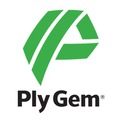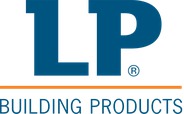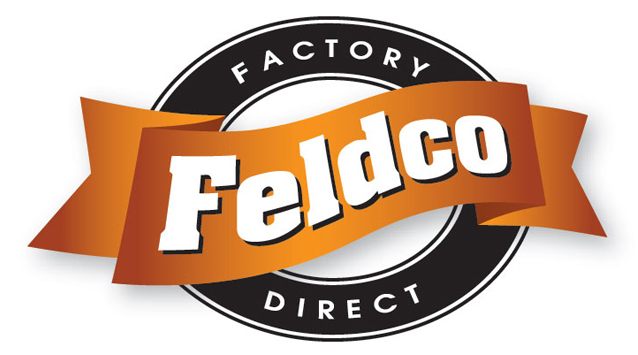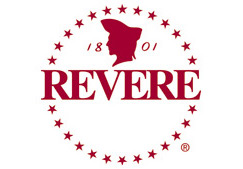Best Siding Companies
Read this guide to learn about and find the best siding company for you. We compared materials, warranty, installation options and availability. Siding is a big project, so you should also consider appearance, durability and value before committing to a product or installer.
- Our recommendations are based on what reviewers say.
- 4,337,775 reviews on ConsumerAffairs are verified.
- We require contact information to ensure our reviewers are real.
- We use intelligent software that helps us maintain the integrity of reviews.
- Our moderators read all reviews to verify quality and helpfulness.
Compare Reviews for Top Siding Companies | ||||||
|---|---|---|---|---|---|---|
Connects homeowners and renters with home improvement specialists for free. Average home improvement job costs between $120 and $6,000. Includes damage protection guarantee up to $500,000. Online booking available. |  | Get a Quote Call Center Open (866) 782-4077 | ||||
James Hardie, headquartered in Ireland, has been in business since 1888. The company manufactures concrete fiber siding that is available in most major global markets. The siding is weather, pest and fire resistant. | Chat with a ConsumerAffairs decision guide Live agent | |||||
High-quality vinyl siding, windows, doors, stone, gutters, trim, molding, fences, railing and shutters. Various color choices and textures. Energy-efficient options. 75+ years in the industry. Online design tool. |  | Chat with a ConsumerAffairs decision guide Live agent | ||||
Smartside Siding, made by Louisiana-Pacific Corporation (LP), is an engineered wood siding available as panels or lap siding. The material is impact and weather resistant, and LP uses sustainable manufacturing methods. |  | Chat with a ConsumerAffairs decision guide Live agent | ||||
| Read Author Review | ABTCO Siding is a brand in the Kaycan family. ABTCO is headquartered in Vermont and offers several types of vinyl siding, including lap, decorative and vertical. The company offers a 50-year, transferable warranty to consumers. |  | Chat with a ConsumerAffairs decision guide Live agent | |||
| Read Author Review | CertainTeed has been in business since 1904 and has produced vinyl siding for more than 50 years. It offers several types of vinyl siding options, including both traditional and cedar-style siding designed to look like wood. |  | Chat with a ConsumerAffairs decision guide Live agent | |||
| Read Author Review | Feldco Factory Direct has been in business since 1976 and operates in Illinois, Iowa, Indiana and Wisconsin. The company sells and installs windows, doors, garage doors and vinyl siding. It offers consumer financing. |  | Chat with a ConsumerAffairs decision guide Live agent | |||
| Read Author Review | Georgia-Pacific sells vinyl siding throughout the United States and Canada. Their products are manufactured by Ply Gem in the United States and are certified by the NAHB for sustainability and the VSI for quality. |  | Chat with a ConsumerAffairs decision guide Live agent | |||
| Read Author Review | Norandex sells vinyl and composite siding, as well as other external building products, to contractors and professional installers across the United States. It is headquartered in Hudson, Ohio and has been in business since 1946. |  | Chat with a ConsumerAffairs decision guide Live agent | |||
| Read Author Review | Founded in 1977, ProVia is an American manufacturer of building products and vinyl siding. Its siding products include traditional lap, decorative and insulted vinyl products that are extremely low-maintenance. |  | Chat with a ConsumerAffairs decision guide Live agent | |||
What to consider when buying siding?
Appearance
The way siding looks differs depending on how that product is cut and mounted. There are several common types of siding.
- Lap siding: Lap siding is the most common siding product. Built from long boards, or material made to look like boards, lap siding is thinner on the top than the bottom, giving it a slight overlap when it is fixed horizontally on a wall.
- Panels: Panel siding comes in large sheets, usually 4 feet by 8 feet. Panels may be made of a variety of materials, including wood or concrete fiber.
- Vertical: Vertical siding is similar to lap siding in size, but it is hung on the wall vertically and may or may not overlap.
- Cedar-style: Cedar-style shingles are quite similar to lap siding in that they are hung horizontally along a wall and overlap. However, these shingle-sized pieces are much smaller than lap siding boards. Traditionally, this type of siding was made from cedar boards, but now many other products are made to look like cedar-style shingles.
Durability
Siding materials must be able to stand up to typical weather, storm hazards, pests and impacts.
- Weather: Rain, snow and humidity can cause damage to siding if the material absorbs too much moisture, causing rotting, mildew, mold and warping. If the material can absorb any water, it will need to be regularly sealed with paint or stain and it will need to be caulked to prevent water from getting under the siding and damaging the wall behind it. Extreme cold or heat can also cause damage if the product becomes brittle or melts. Make sure to select a material that suits your local climate.
- Storms: Storms with high winds can rip siding off of a home. If you live in an area with high winds, make sure to choose a product that attaches to the walls in a highly wind resistant manner.
- Fire: Exterior fires can damage many types of siding, and flammable siding provides fuel to fires. If you live in an area where wildfires are common, choose a fire-resistant product to help protect your home in the event of a fire.
- Pests: Bugs and small creatures are attracted to many materials. Choosing an inorganic product will reduce the likelihood that your siding will be damaged by pests.
- Impact: Anything that hits the side of your home (from a baseball to hail) can damage or dent your siding. Reinforced or slightly flexible siding will be less likely to dent when hit.
Warranty
Most siding products have some kind of warranty. Consumers concerned about their new siding's durability or their home’s resale value should pay special attention to the warranty details.
- Transferable: Some companies offer a transferable warranty. If you plan to sell your home in the future, choose a brand with a transferable warranty to increase your resale value. If you sell your house, make sure to notify the warranty company to ensure the warranty remains in effect for the new owner.
- Timeframe: Although many companies offer so-called lifetime warranties, these warranties are actually only effective for a certain number of years. Make sure you understand what the warranty covers and exactly how long it is effective.
- Prorated: Some warranties cover the full replacement or repair cost as long as they are in effect. Prorated warranties cover a percentage of the cost that decreases over time. It is quite common for a warranty to cover the full cost for the original owner but become a prorated warranty if it is transferred to a new homeowner.
Sustainability
A sustainable or green product is usually manufactured in the most environmentally-friendly way possible and helps the homeowner use less energy after it is installed.
- Insulation: Many newer siding products can increase the R-value of exterior walls, which makes them much more energy efficient. R-value is a measure of thermal resistance; the higher the R-value, the less hot or cold air will penetrate the surface.
- Manufacturing: Most manufacturers discuss their sustainability efforts on their website. If you’re concerned about a company’s environmental impact, look for companies that clearly discuss their supply chain (meaning where their raw materials come from) and their efforts to save energy.
Value
Siding’s value can be determined by thinking about the price of the product and installation in relation to the savings or benefits that could result.
- Price: If you plan to install siding yourself, make sure to include any accessories or sealants that will be required to complete the project as well as any delivery fees. If you hire a professional contractor or installer, they should give you a binding quote before they begin the project.
- Resale value: Modern and well-maintained siding can add a significant amount to the value of your home when selling it. Research indicates that sellers recover between 78 and 92 percent of the original cost of siding when selling their house.
- Insurance benefits: Some insurance companies offer a discount on homeowners policies if the siding offers a particular safety benefit, like fire resistance.
- Energy savings: Homeowners can save money on their energy bills if they replace their existing siding with a more energy efficient one.
Maintenance
Many people replace their existing siding with a product that requires less maintenance.
- Timeframe: Consider how often you’ll need to perform any necessary maintenance. Talk to friends or neighbors with different types of siding and ask how often their siding needs to be painted, stained, washed or caulked.
- Cost: Consider the cost of upkeep when selecting a new siding product. A more expensive siding that requires less maintenance will be cheaper in the long run.
- Labor: Consider how much work is involved in maintaining the siding. For instance, power washing siding will require less labor than painting it; if you don’t like to or cannot perform the regular upkeep, consider low maintenance siding.
What is siding made from?
Wood
Wood is one of the most visually popular types of siding, and many other types of siding are molded to look like wood. It is also the most traditional and expensive siding option. Wood siding must be routinely treated or otherwise maintained to prevent water damage.
Metal
Many siding choices are available in aluminum and steel. These products are relatively low maintenance and fire resistant. They are environmentally-friendly because they are usually made from recycled material. Installers will need special tools to cut metal siding, and it is more susceptible to dents than most other siding choices.
Vinyl
Vinyl siding is made from Polyvinyl Chloride (PVC). It is colored during manufacturing and never needs to be painted or stained. It also resists rot and insects, making it a very low-maintenance option. Some vinyl siding may be damaged by extremely cold temperatures. Because of the joints and mounting, vinyl siding isn’t waterproof, so homeowners must install a weather barrier under the product.
Concrete fiber
Concrete fiber siding is made using concrete, a binding agent and wood fibers. It has a low-moisture content so it is less likely to warp than traditional wood products, and it’s more fire-resistant than wood. However, it is significantly heavier than wood. If not properly installed, moisture damage may be a problem for some concrete-fiber products. Installers will need special tools to cut this material.
Engineered wood
Engineered wood is made from combining wood strands and fibers with a resin and pressing the material into a board. It is then treated to prevent water damage. These boards are often stronger and less expensive than traditional wood. The product is significantly lighter than wood siding. It’s typically available in longer lengths than traditional wood, meaning there will be fewer seams on the finished structure.
Who should buy siding?
Homeowners
Most homeowners will either have to perform maintenance on their existing siding or replace it at some point.
Rental property owners
Those who own and rent out real estate will need to maintain the siding on their rental properties regularly and replace it when necessary.
Environmentally-conscious consumers
Environmentally-conscious consumers looking to reduce their carbon footprint will want to consider replacing their siding to make their homes more energy efficient.
DIYers
People who like performing home repairs and doing maintenance themselves should consider replacing their siding on their own when the time comes to do so.
Siding FAQ
What is the most durable siding?
The most durable siding option is stucco. With proper maintenance, stucco can last as long as 50 years. Other great options include:
- Metal siding
- Fiber cement siding
- Vinyl siding
- Brick siding
What is the best vinyl siding thickness?
The most durable vinyl panels are up to 0.05 inches thick, but vinyl siding thickness can start at a thickness of .035 inches.
How much does it cost to side a 1,500 sq ft house?
The average cost for a vinyl siding installation is about $6,700, or $4.50 per square foot. High-quality vinyl siding costs even more, up to as much as $7 per square foot.
Does insulated siding really work?
Yes, insulated siding does work:
- Insulated siding forms a barrier between the air outside and the conditioned air inside your home.
- This makes your home much more energy-efficient by keeping your HVAC system from working more than it has to.
- This, in turn, lowers your energy bills and saves you money over the long term.
Insulated siding also increases your home value because buyers are looking to get these benefits as well.
How long does insulated vinyl siding last?
Generally, insulated vinyl siding lasts up to 40 years or more. While it is more expensive to install than normal vinyl siding, insulated vinyl pays you back for the added expense over its lifetime in the form of energy savings and higher home value.
Can vinyl siding be installed vertically?
Yes, you can install vinyl siding vertically. This method provides a different look and makes your siding easier to clean, too. However, installation is generally more complex — and more expensive.
Does siding increase home value?
Yes, siding does increase a home’s value. Not only does siding look nice, but it can also provide energy savings by insulating the home, both of which are attractive to potential buyers.
Thanks for subscribing.
You have successfully subscribed to our newsletter! Enjoy reading our tips and recommendations.
Compare Reviews for Top Siding Companies | ||||||
|---|---|---|---|---|---|---|
| Read Author Review | Revere brings more than 40 years of experience to the exterior home building materials industry. The company offers siding and windows. Associated Materials Incorporated, established in 1947, owns Revere. |  | Chat with a ConsumerAffairs decision guide Live agent | |||
Information in this guide is general in nature and is intended for informational purposes only; it is not legal, health, investment or tax advice. ConsumerAffairs.com makes no representation as to the accuracy of the information provided and assumes no liability for any damages or loss arising from its use.
Want your company to be on this guide?
Yes, continueYou’re signed up
We’ll start sending you the news you need delivered straight to you. We value your privacy. Unsubscribe easily.
